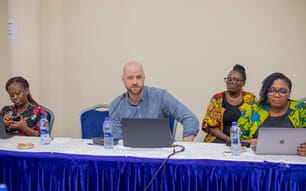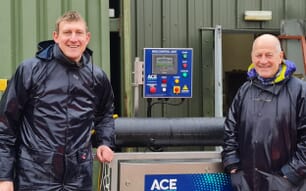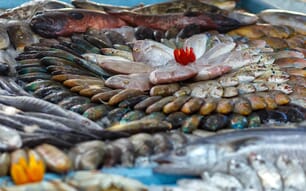An EU-funded project has developed cutting edge monitoring and management tools to help marine scientists better assess the state of biodiversity in the seas around Europe. These tools will also help governments in their quest to achieve Good Environmental Status (GES) of the seas by 2020 – a legal requirement under the EU’s Marine Strategy Framework Directive (MSFD).
The four-year DEVOTES project, launched in November 2012, covers four European sea regions and includes eight case studies. The importance of assessing marine ecosystems in a more integrated way was underlined recently by DEVOTES researchers at an Association for the Sciences of Limnology & Oceanography (ASLO) meeting in Granada, Spain.
The meeting, which was held from 22 to 27 February 2015, heard from project team members Angel Borja, Ben Halpern and Philippe Archambault on new software that allows scientists to investigate marine health across different habitats and to measure change and evolution over time.
An important piece of this jigsaw was completed last year. The so-called ‘DEVOTool’ has been designed to enable interested parties to browse, search and analyse metadata recorded by the project partners. Almost a year after its launch, the software has been downloaded more than 100 times, with the corresponding web page visited between 50 and 100 times per month.
The project has also released a database with 844 entries concerning 210 distinct species and 19 groups classified by major habitats in the Baltic Sea, North East Atlantic, Mediterranean, Black Sea (EU Regional Seas) and Norwegian Sea (Non-EU Sea). Detailed information is provided on their type, importance, size/abundance/distribution, habitat and region.
Another aspect of the project has focused on preparing new PhD researchers with specific expertise in the MSFD. This new piece of legislation is challenging for both marine scientists and managers, and effective implementation will require well-trained staff. Several masters courses and summer schools have incorporated lectures from DEVOTES team members.
In June 2015 for example, the DEVOTES project is running a summer school in San Sebastian, Spain, focusing on understanding marine ecosystems for healthy oceans. The course will look at complex interactions between human pressures and ecosystem responses; the interactions between multiple ecosystem components; the shifting baselines used to assess environmental status; and the need to address both socio-economic and environmental issues.
DEVOTES intends to continue to build up its integrated resources, making the software more useful to both scientists and policy makers. For example, project partners are now looking at ways of integrating new databases into DEVOTool. The team is also working on making the tool’s search function more user-friendly and responsive to scientific needs.
When the project reaches completion in October 2016, it is expected that the team will have delivered a single integrated application useful for a variety of users. This will help both scientists and policy makers to identify threats to marine biodiversity, and to deliver on the MSFD.




